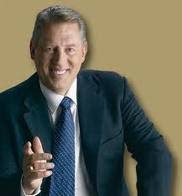
Notes From United States Military Academy
A few notes I put together from a recent
USMA video we watched:
1. Realize you are a small part of a great institution.
2. Count on your buddies.
3. Responsible not only for self but roommates.
4. After morning workout they have 20 minutes: to shower, memorize newspaper articles, memorize menu, and clean their room.
5. Everything is designed to be a challenge.
6. Instill over a long period of time an attention to detail.
7. Teamwork
8. Everyone subjected to same discipline and same rigor.
9. We press people. Raise them to a standard they never thought they could never achieve.
10. You do things you
didn’t think you could do before.
11. Train them to be leaders.
12. How am I going to accomplish this task before me?
13. Be mentally into it.
14. Suffer—Perseverance—CharacterSelf Confidence to overcome circumstances.
15. This is not for everyone.
16. They take ownership.
17. Force them to prioritize.
18. Act composed, cool and rational in times of stress.
19. Draw not only from your own reservoir but from others as well.
20. Mind is stronger than anything you can imagine.









